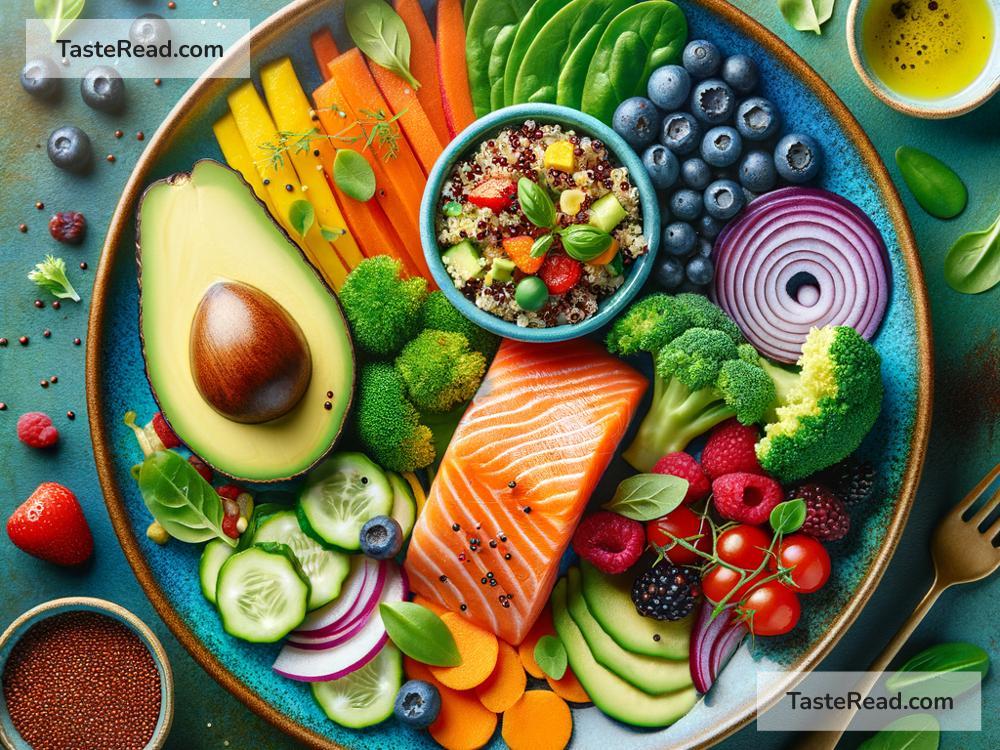Foods for Reducing Obesity Risk: A Simple Guide
Obesity is a growing health concern around the world. It can lead to serious health problems like diabetes, heart disease, and high blood pressure. Thankfully, there are many ways to reduce the risk of obesity, and eating the right foods is one of the most important steps you can take. In this article, we’ll explore some of the best foods you can include in your diet to maintain a healthy weight and lead a healthier life.
What Causes Obesity?
Before we dive into the foods, let’s quickly understand what causes obesity. Obesity happens when your body stores too much fat. This can be due to overeating, eating unhealthy foods, not moving enough, or even due to genetics. However, most cases of obesity are related to lifestyle, which means you can make changes to reduce your risk.
Foods That Can Help Reduce Obesity Risk
The following foods can help keep your weight in check and improve your overall health:
1. Fruits and Vegetables
Fruits and vegetables are packed with vitamins, minerals, and fiber, but they are low in calories. Fiber makes you feel full, which can help you eat less. Choose options like:
- Leafy greens like spinach, kale, and lettuce
- Fruits like apples, oranges, berries, and melons
- Vegetables like broccoli, carrots, and zucchini
These foods can satisfy hunger without adding unnecessary calories. For example, swapping chips for carrot sticks or an apple can help you avoid overeating unhealthy snacks.
2. Whole Grains
Whole grains like brown rice, quinoa, oats, and whole wheat bread are high in fiber and nutrients. Unlike refined grains (white bread, white rice), whole grains digest slowly, keeping you full for longer. Eating whole grains can stop you from feeling hungry too quickly between meals and help control your calorie intake.
3. Lean Protein
Protein is essential for your body to repair and build muscles. Lean proteins also help you feel full and curb unhealthy cravings. Some great protein options include:
- Chicken breast
- Turkey
- Fish like salmon, tuna, and cod
- Eggs
- Beans and lentils
Proteins can help reduce overeating because they promote a sense of fullness, which keeps you satisfied longer than sugary or carb-heavy foods.
4. Healthy Fats
Not all fats are bad! Healthy fats found in foods like avocados, nuts, seeds, and olive oil can help improve metabolism and support weight management. These fats are good for your heart and brain, unlike trans fats and saturated fats found in fried or processed foods.
For example, eating a handful of almonds or drizzling olive oil on your salad is a better option than eating fried snacks or buttery desserts.
5. Low-Fat Dairy
Low-fat dairy products like yogurt, milk, and cheese are rich in calcium and protein. They can be a healthy part of your diet if you choose unsweetened versions. Greek yogurt is particularly good because it’s high in protein and low in sugar.
Low-fat dairy can be a good substitute for higher calorie options like ice cream or creamy cheese dips, helping you prevent unnecessary weight gain.
6. Legumes and Beans
Legumes such as beans, lentils, chickpeas, and peas are loaded with fiber and protein. These nutrients keep you full and help avoid overeating. They’re also versatile; you can add them to soups, salads, or stir-fries.
Eating legumes is a great way to replace starchy or fatty foods with something nutritious and filling.
7. Foods Rich in Water
Foods like cucumbers, watermelon, celery, and tomatoes have high water content. They are low in calories and naturally hydrating, making them a smart choice for snacks or sides. Eating water-rich foods can help you feel full without consuming too many calories.
8. Green Tea
Although not technically a food, green tea is a fantastic drink for weight management. It contains antioxidants that boost metabolism and help burn fat. Instead of calorie-rich sodas or sweetened beverages, opt for a cup of green tea for a healthier option.
Foods to Avoid
Just as there are foods that help reduce obesity risk, there are also foods you should avoid as much as possible:
- Sugary drinks like soda, juice, and energy drinks
- Fast food like burgers, fries, and fried chicken
- Processed snacks like chips, cookies, and candy
- White bread and pastries
- Foods high in saturated and trans fats (e.g., fried foods, processed meats)
These foods are often high in calories, sugar, and unhealthy fats, which lead to weight gain and make it harder to maintain a healthy weight.
Other Helpful Tips
Reducing obesity risk isn’t only about what you eat—it’s also about how much you eat and how active you are. Here are some additional tips:
- Practice portion control: Eat smaller servings and learn to recognize when you’re full.
- Cook at home: Homemade meals are often healthier than restaurant or fast food options.
- Stay active: Exercise regularly to burn calories and improve your overall health.
Conclusion
Eating the right foods can play a big role in reducing your risk of obesity. Fruits, vegetables, whole grains, lean protein, healthy fats, and legumes are all great choices to maintain a healthy weight. Pairing these foods with regular exercise and smart eating habits can help you stay fit and avoid obesity-related health problems.
Remember, small changes in your diet can make a big difference over time. Choose foods that nourish your body and support your long-term health—you’ll feel better and thrive!


